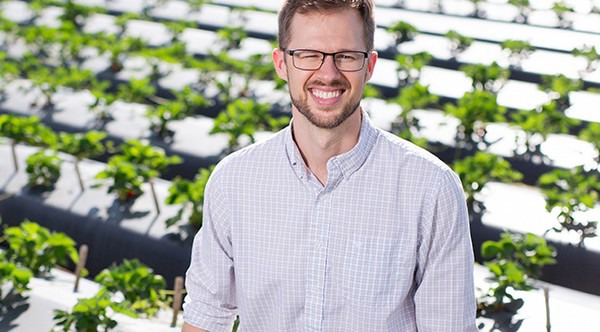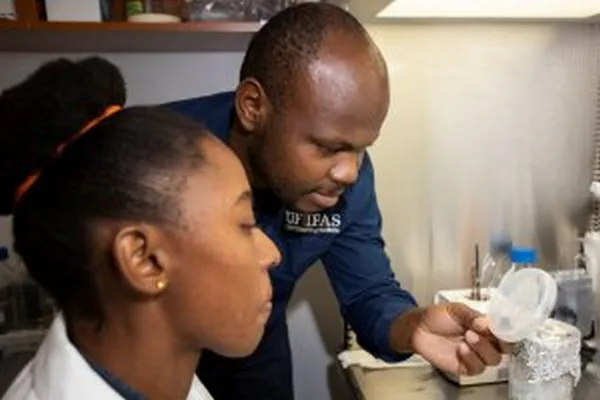Working in labs and fields across Florida, a new generation of students will start earning a Ph.D. in plant breeding from the University of Florida – the first program of its kind in Florida and one of a few in the nation.
“The new Ph.D. program is important because it will help attract the best plant-breeding students to UF/IFAS, and it will help us as faculty to provide them the best possible education,” said Vance Whitaker, a UF/IFAS associate professor of horticultural sciences and a strawberry breeder at the Gulf Coast Research and Education Center. “It will help create synergy among the plant-breeding students working across multiple departments.”

“Students’ dissertation research will contribute substantially to breeding programs because the success of varieties released by breeding programs is built on the science of breeding and genetics,” Whitaker said. “Plant breeding is vital to meeting the food, feed, fiber, and environmental quality needs of our burgeoning worldwide population. Developing better crops will help us produce more food with fewer resources in a sustainable manner. Our students are passionate about those needs and goals, and that is why they want to become plant breeders.”
Food security
Elaine Turner, dean of UF/IFAS CALS, said top-flight graduate students will help scientists as they work toward solving issues such as hunger.
“Plant breeding is an important element in our collective efforts toward global food security,” Turner said. “Recruiting top graduate students and providing them with an outstanding academic program that incorporates traditional and modern breeding techniques along with applications of artificial intelligence, will help us achieve our goal of eliminating hunger through sustainable food production.”
UF/IFAS CALS already has many faculty members whose research focuses on plant breeding, with academic homes in four departments: agronomy, horticultural sciences, environmental horticulture and the School of Forest, Fisheries and Geomatics Sciences. Those faculty already regularly mentor graduate students, who also study plant breeding and earn graduate degrees in agronomy, horticultural sciences, forest resources and conservation or plant molecular and cellular biology.

Dr. Geoffrey Meru, a vegetable geneticist and breeder at the UF/IFAS Tropical Research and Education Center in Homestead, works with a student in his lab.
Students will start their hands-on learning in August. As they do, they’ll learn from about 27 UF/IFAS scientists across the state. Those researchers use traditional and newer breeding technologies, including gene editing.
Through plant breeding, researchers try to ensure crops and ornamental plants resist diseases, pests, droughts and flooding. They also hope to make sure the fruits taste good and that plants emit a wonderful aroma and look beautiful.
Those crops include citrus, tomatoes, strawberries, peanuts, blueberries, corn, lettuce, and sugar cane. UF/IFAS breeders also develop ornamental plants and cattle forage.
“One of CALS’ highest priorities is to provide relevant curricula so we can meet our mission of preparing students to meet the world’s critical challenges in agriculture, food systems, human wellbeing, natural resources, and sustainable communities,” Turner said. “This program integrates the expertise of faculty across four different departments into a one-degree program.”

 UF/IFAS
UF/IFAS